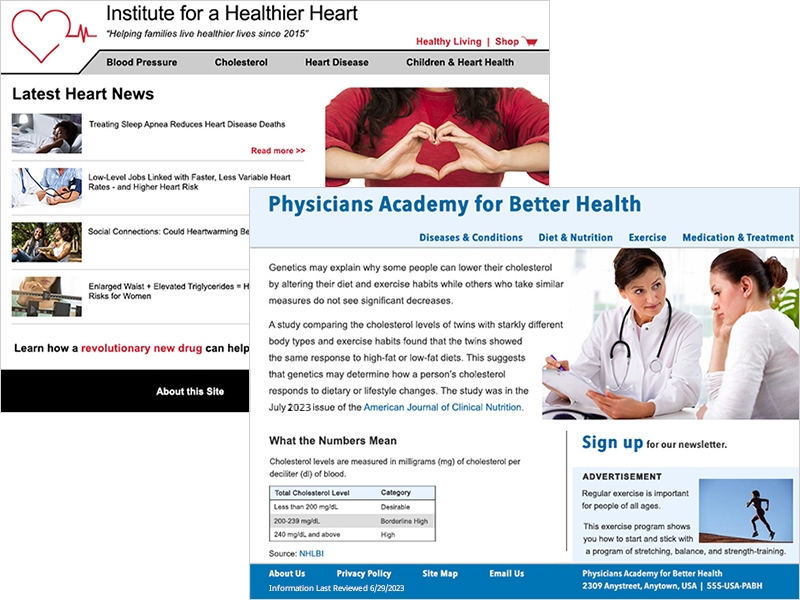Evaluating Internet Health Information Tutorial
Using the internet to find health information is easier than ever. Sometimes it even finds its way to you when you aren't searching for it. For example, someone you know or follow on social media may share a link to online health content. Or they may share a photo or meme with health-related content. But how can you be sure the information is trustworthy? Health information that is false, not accurate, or misleading is known as misinformation.
Often, we don't realize we're sharing misinformation. Misinformation can be many things. Sometimes it is out-of-date facts or research. It can also be memes that started as jokes but now people take them seriously. Sometimes it is content meant to grab your attention. But if you share a social media post without being sure the content is trustworthy, you could be spreading misinformation. Sharing misinformation can be dangerous and even harmful.
You might feel overwhelmed knowing that misinformation is out there, but don't worry! By the end of this tutorial, you will have the tools to help you identify trustworthy health information online.
As an example, imagine that your doctor just told you that you have high cholesterol. You want to learn more about it before your next doctor's appointment. So, you do an online search and find these two websites.

Both sites look professional, but anyone can put up a web page that looks good. This tutorial will take a closer look at these websites to show you how to uncover important clues about the quality of health information you might find online.
This tutorial explores three categories of questions to ask:
1) Provider and Purpose
In this case, "provider" means the people or organization that provides the information. You can't trust health information if you don't know where it comes from. So, you'll need to ask:
- Who manages the site?
- Why have they created the site? What is their purpose?
- What do they want from you?
- Who is paying for the site? Does the site's information favor the sponsor?
2) Information Quality
You don't want to make health decisions based on inaccurate information. These questions will help determine whether you can trust that you're getting the facts:
- Is the information reviewed by experts?
- Where did the information come from?
- Does the site make claims that sound too good to be true?
- Is the information up to date?
3) Privacy
A trustworthy website will be clear about its privacy policies. Check to see:
- Does the site ask for your personal information?
- If so, how will it be used?
You can usually find most of the answers on a website's main page or the "About Us" page.
Let's look at the two sample websites for clues to help figure out if they are trustworthy.



